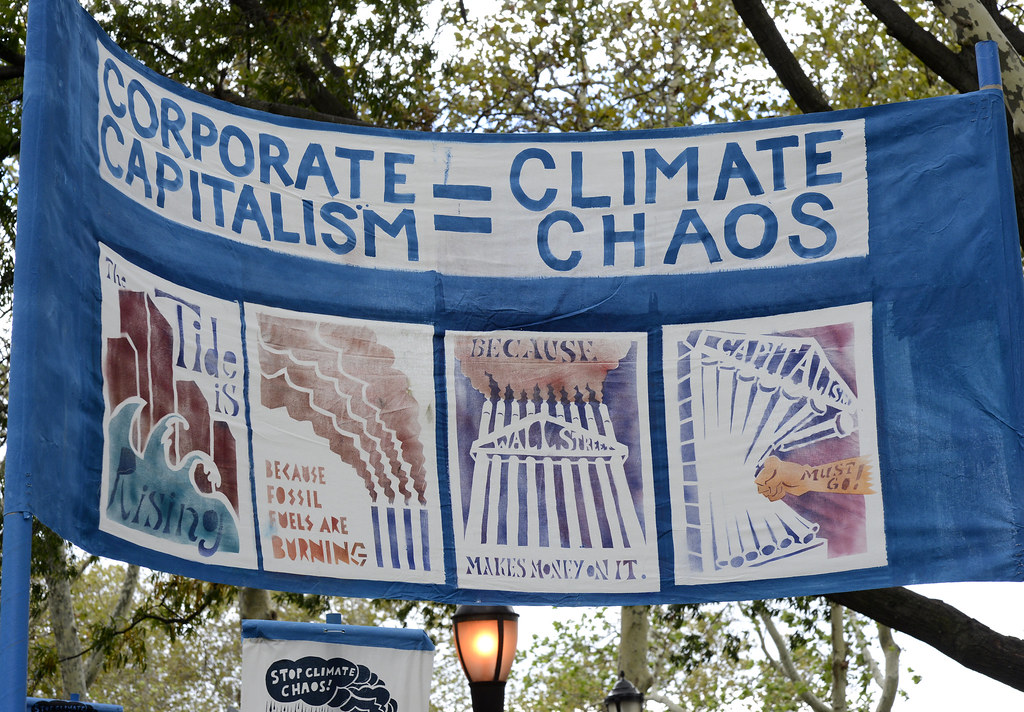FOR IMMEDIATE RELEASE
Contact: Hannah Story Brown, storybrown@therevolvingdoorproject.org
The Revolving Door Project released a new “Industry Agenda” report today breaking down the systemic flaws and increasing relevance of the carbon offset industry as the favored greenwashing strategy for big industries and high-polluting nations. The report highlights the policies and executive branch agencies of interest to players in both voluntary and compliance carbon markets in the United States.
The report also highlights some key Biden administration officials who have expressed support for carbon market-friendly policies. These include Secretary of Energy Jennifer Granholm, who has expressed support for carbon capture and offsets as climate solutions; John Morton, Climate Counselor to the Secretary of the Treasury, who previously worked at a climate change investment firm heavily involved in carbon markets; and Secretary of Agriculture Tom Vilsack, who has advocated for creating a carbon bank within the Department of Agriculture.
Report co-author Hannah Story Brown said: “As the calamities of climate change accelerate, high-polluting industries are lining up behind purported market solutions to the climate crisis, disguising business-as-usual behind a rash of ‘net zero’ pledges. The Biden administration must resist the siren call of the carbon market’s false promises, and instead coordinate an executive plan that supports actual economy-wide decarbonization.”
Read the Carbon Offset Industry Agenda report here.
Key Takeaways:
- The basic premise of carbon offsetting is flawed, because the profitability of carbon markets depends on offset buyers continuing to pollute, while offset sellers’ claims that CO2 emissions are being prevented or removed are often (intentionally or not) false.
- “Net zero” pledges depend on the removal of carbon from the atmosphere to offset continued emissions. But carbon removal technology does not exist at the scale required by net-zero pledges, and will not exist in time for it to matter.
- There are two basic types of carbon markets: voluntary markets and compliance markets.
- In voluntary markets, companies and individuals buy offsets through retailers who manage portfolios of carbon-offsetting projects to meet corporate and individual sustainability goals. They are largely unregulated, and historically have been rife with fraud.
- In compliance markets, national governments buy offsets to meet nationally-determined contributions to global emissions reductions. Governments also create and regulate cap-and-trade programs, where companies buy and sell carbon “allowances” which together add up to the total “allowed” emissions.
- Fossil fuel companies have successfully lobbied to weaken cap-and-trade programs, and to secure federal funding for “carbon capture technology” (CCT), an expensive and consistently unsuccessful technological approach that purportedly “captures” carbon emissions from fossil fuel combustion before it is absorbed into the atmosphere.
- The lack of regulation and standardization in voluntary carbon markets has long made them a volatile investment. Key finance and fossil fuel industry players are consultants on the development of a new independent governance body for voluntary carbon markets.
How is the Executive Branch Involved?
- Financial regulation impacts both voluntary and compliance carbon market schemes:
- Updating capital requirements to account for climate risk
- Requiring accurate disclosure of climate-relevant investments and holdings
- Requiring accurate disclosure of firms’ emissions, their reduction, and the use of offsets to meet carbon targets
- Overseeing the transactions of carbon-based offsets, securities, and derivatives
- The executive branch controls use of public land for fossil fuel extraction, clean energy development, and offsetting projects
- Agencies are responsible for protecting consumers from misleading environmental claims
- Agencies are responsible for measuring and regulating greenhouse gas emissions and their reduction
- Agencies could potentially create or regulate carbon markets through a carbon bank, carbon tax, and/or carbon exchange
- The Department of Energy manages locked-in federal investments in energy technologies
IMAGE: “2014 Flood Wall Street 5” by Stephen D. Melkisethian is marked with CC BY-NC-ND 2.0.

